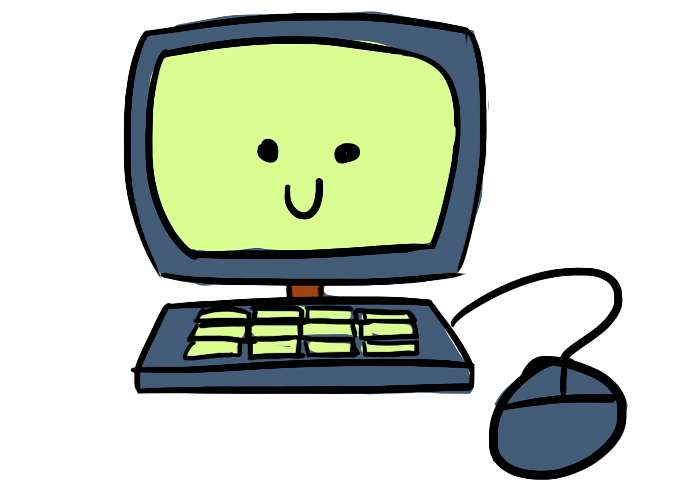Officially, computer addiction has been recognized by psychiatrists in the mid-nineties of the XX century. Then, the primary classification of options of such kind was introduced. Above all it is video game addiction. In its turn, it can be divided into such variants as online addiction and off-line addiction.
The first one, or so called online addiction is connected with the obsessive idea to play games on the Internet, while off line addiction presupposes constant usage of video games without Internet connection. The difference between these two types lies in a fact that the Internet game always presupposes the communication with partner, as well as the competition.

The second case (offline addiction) involves competition and communication with the computer only. Computer acts as a game partner, as well as the interlocutor and opponent. In most cases, those children and adolescents, who suffer from conflicts with family and friends, and have no other hobbies, become computer addicted. They find an outlet in the virtual world and consider their progresses in computer game enough to assert themselves and to improve their condition.
The problem of computer addiction it is also the problem of the loss of confidence. If a person was betrayed or deceived, he will try to avoid the repetition of negative experiences. It means that he will choose the relationship that will protect him from negative experiences. Participation in the virtual world allows children and adolescents to relax and ignore the psychological problems in the real world, but this occurs only during the time they stay in the virtual space.
For game addict, the real world is not interesting and full of dangers, that is why people are bad at adapting in a society. As a result, a person tries to live in a virtual world where everything is possible and everything is permitted, where he sets the rules of the game on his own.
It is logical to assume that the way out of the virtual reality is painful for the addict: he collides with the reality he hates once again, and that causes a decrease in mood and activity, the feeling of poor health.
Common symptoms of computer addiction
Psychological symptoms:
• It is difficult for a person to break away from his work or playing the computer;
• When someone or something distracts him from the computer, he shows severe irritation;
• Failure to plan the completion of session work or play;
• Time spent on the computer causes the addict to postpone or ignore the housework, work, study, meetings;
• The constant search for money to buy games, equipment, fees for the Internet;
• Always has explanation and justification in front of others. The child begins to cheat, while the adult shows mimic violent activity;
• Feeling of emotional euphoria during the work with the computer;
• Business out of computer world causes depression and irritation;
• Discusses computer themes always and with everyone who understands something on this issue.
Physical symptoms:
• Carpal tunnel syndrome, numbness and reduced sensitivity of the fingers;
• Dry and red eyes;
• Headaches (similar to migraine);
• Back pain;
• Failure to comply with hygiene;
• Sleep disturbance;
• Eating meals randomly or eating the same food all the time, not looking up from the computer.
If you noticed any of these symptoms, you should definitely pay attention and help this person, because the consequences may appear to be really severe. Internet addiction is a very dangerous thing that should be avoided. Each of us should be tolerant and attentive to the modern techniques, but never exaggerate its abilities and influence.